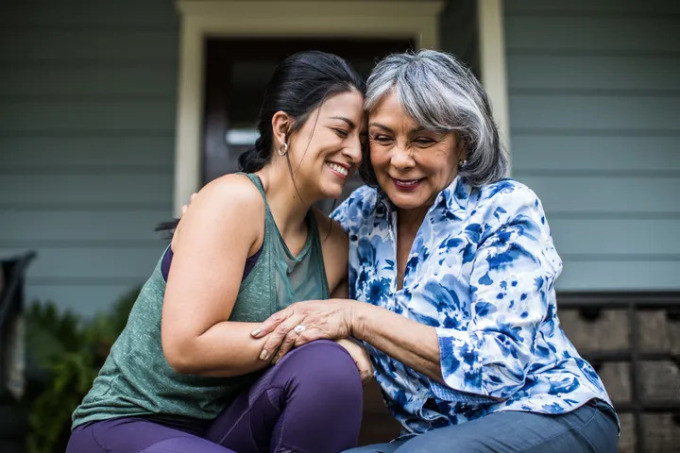Simple words can pave the way for a stronger and healthier parent-child relationship.

As children grow into adults, their relationship with their parents will inevitably change, sometimes for the better, sometimes for the worse. Nurturing affection during this period requires effort.
Adult children often crave understanding and affirmation from their parents, especially an acknowledgement of past hurts, says marriage and family therapist Lara Morales Daitter, of Northern California.
These affirmations can have significant healing power, especially when a parent's childhood was focused on their own challenges and their child's emotional needs were not met.
Here are six powerful things parents can say to their adult children to improve their relationships with each other.
Sorry
This statement is something many adult children would rather hear, according to therapist and mental health authorMenshealthJor-El Caraballom.
“As Generation X, Millennials, and some Generation Z begin to reflect on their growing up, they will have a greater appreciation for how their parents’ choices impacted them,” says Jor-El Caraballom.
He stressed that for adult children who are looking to break through family negativity to move forward for the better, receiving recognition and an apology from their parents is of great significance.
Marriage and family therapist Arielle Dualan, of California, stresses the importance of parents apologizing to their adult children for any hurt they may have caused, even if it was unintentional.
“Most adult children understand that their parents are not perfect. Some parents have difficulty acknowledging the unintentional or intentional harm they may have caused their children, at any stage in their lives,” she says.
Parents tried their best
This statement doesn't excuse every mistake, but it does convey an important message: parents have tried their best to do the best they can in their roles.
Balancing work, family, and parenting responsibilities can be difficult and challenging for parents, says therapist Nedra Glover Tawwab, author of Set Boundaries, Find Peace.
However, these experiences and difficulties are also valuable resources that parents can share with their children. This helps children understand the context of their parents' decisions and actions, increasing understanding and bonding. This can also help children learn valuable lessons about life, how to cope with difficulties and how to build good relationships with others.
Parents are really proud of their children
No matter what age, children want to know that their parents are proud of them and what they have achieved. According to therapist Jor-El, many parents raise their children with the desire for them to be better and achieve more than they have achieved.
These expectations make many children doubt their own achievements, and saying "I'm proud of you" can be a valuable affirmation.
I go another way but my parents will support me.
Some parents may push their adult children to follow a similar life trajectory because they believe it is the right path. However, everyone has their own path and it is important for parents to respect their children’s choices. It is very empowering to hear parents express respect and support for them to live their lives the way they want.
“This statement affirms your child, gives them autonomy in their life, and fosters feelings of happiness,” says Morales Daitter.
Do you want advice or do you want someone to listen?
When adult children face challenges, they sometimes need to figure things out on their own without their parents' help. "Parents need to remember that they have gone through difficult times and made bad decisions, so let your child make mistakes," says therapist Nedra Glover Tawwab.
Tawwab added that when raising children as adults, parents cannot protect them as they did when they were children. Instead, it is important to listen, understand and ask if they want advice. Forcing advice can sometimes be counterproductive.
Parents will always be there for you
Even as adults, we still feel warm knowing that our parents are always there, providing a solid support in life. "Parenting doesn't end when the child grows up. The relationship simply changes over time," says Caraballo.
As parents age, they may spend more time on their own personal goals and interests. However, that does not mean they should completely withdraw from their responsibilities to their children.
TH (according to VnExpress)